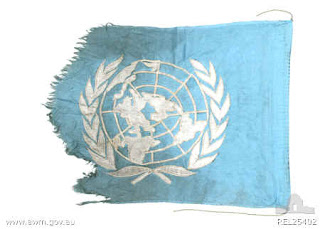 As if the build-up to the presidential election next year were not chaotic enough, National Security Bureau (NSB) chief Shi Hwei-yow (許惠祐) revealed last week that the bureau had become aware of a “threat” against Chinese Nationalist Party (KMT) presidential candidate Ma Ying-jeou (馬英九). In and of itself, there was nothing wrong with the revelation — except that it was altogether irresponsible of the NSB to make the information public before it had completed an assessment of the credibility of the threat by so-called “radical elements.”
As if the build-up to the presidential election next year were not chaotic enough, National Security Bureau (NSB) chief Shi Hwei-yow (許惠祐) revealed last week that the bureau had become aware of a “threat” against Chinese Nationalist Party (KMT) presidential candidate Ma Ying-jeou (馬英九). In and of itself, there was nothing wrong with the revelation — except that it was altogether irresponsible of the NSB to make the information public before it had completed an assessment of the credibility of the threat by so-called “radical elements.”Intelligence services the world over prepare what are formally known as “threat assessments” — reports, based on intelligence collected from various sources, that address threats to, among others, the security of the nation, its citizens at home and abroad, critical infrastructure, the economy, visiting foreign diplomats and the domestic political leadership.
Part of the responsibilities of analysts involved in the preparation of threat assessments is to sift through the daunting quantity of material that comes their way, from undigested, or “raw,” intelligence to assessments provided by agencies both domestic and foreign. The secluded world in which these analysts operate — after all, their very purpose of the unit is to think of threats — makes the task of telling signal from noise an onerous one at best.
This is why dependable threat assessments are based on “threat matrices,” which take both “threat” and “risk” into consideration, as well as whether the information regarding the threat is “single thread” — from one source alone — or has been corroborated by other means, such as human sources, signals intelligence and intercepts. The reliability of the source(s) is factored into the final evaluation, which, under their different guises, usually provide a “threat level” (e.g., a scale of one to 10, or “low,” “medium,” “high”) or an assessment of probability.
As a responsible and professional intelligence service, we can expect that the NSB goes through a similar process before it delivers a threat assessment to its customers in government. But in this instance, to openly discuss a threat in such a way that it becomes public — the news appeared in newspapers the very next day — before all the necessary steps involved in the production of a threat assessment have been made (“We are evaluating whether [the threats] are real,” Shi said on Monday) is either the result of gross incompetence or the willful utilization of fear to exacerbate tensions in an already charged political environment.
Government transparency is welcome and there should be more of it. But sensitive information such as a possible threat to assassinate a political figure should be handled with caution and should never be shared before its veracity has been ascertained. After all, threat assessment units receive, on a daily basis, dozens if not hundreds of leads, most of which turn out to be groundless, noise, and thus duly discarded.
But such malpractice is not without its precedents. For some time after the Sept. 11, 2001, terrorist attacks in the US, global intelligence agencies, in their renewed sense of siege, tended to seize on every threat and to report them before their credibility had been assessed. That practice eventually tapered off as the credibility of the Cassandras broadcasting the threats to both government and the public came under question. Facing the very real risk of numbing clients to the possibility of credible threats in future, those agencies had no choice but to become a little more discerning in what they would share.
We can perhaps forgive the NSB and other security agencies for being in a heightened sense of awareness as the elections approach, but if they want to retain their utility and avoid needlessly draining finite resources, they must refrain from feeding noise to the government and the public and not cry wolf before the semblance of a howl has been heard.

























